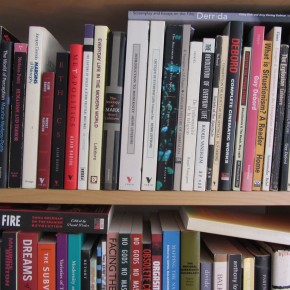Sometimes, it seems, that Israel’s security echelon is as bent on terrifying the country’s Jewish population as it is the Palestinians. Considering the paranoid prognostications of Major General Eyal Eisenberg, that the Arab Spring could give way to “a winter of radical Islam … and as a result the possibility for a multi-front war has increased, including the potential use of weapons of mass destruction,” one would be hard pressed to imagine otherwise.
It is no coincidence that Eisenberg issued this dire warning the same week as Turkey suspended military ties with Israel and increased its overtures toward the transitional Egyptian government. For the past three decades, Turkey and Egypt have been Israel’s staunchest allies in the Middle East. But the times are changing fast. Israel’s long out-of-date mindset and diplomatic “strategy” are driving it into unprecedented isolation.
The stubborn refusal of the Netanyahu government to apologize for killing nine Turks (one of whom was also a US citizen) in the infamous flotilla incident in 2010 is only the tip of the iceberg. Tensions have been brewing with Turkey for some time, ever since the current government, one both more popular and somewhat more influenced by Islam (though Turkey remains decidedly secular,) came to power.
The upheavals throughout the Arab world, particularly in Egypt, have also made it much more difficult for governments to acquiesce to American pressure and tolerate Israel’s ongoing occupation. Always a de-stabilizing factor in the region, the Israeli occupations of the West Bank, East Jerusalem and the Golan Heights and its ongoing siege on the Gaza Strip remain causes for popular rage. The shifts in attitude and policy in both Turkey and Egypt simply reflect governments that are more responsive to public sentiment than their predecessors.
Eisenberg’s response to these developments is, unfortunately, much too common in Israel these days. And not only there. The idea that intense opposition to Israeli policies is based on “hatred,” be it political, ideological or religious, has never been stronger amongst Israel’s so-called supporters. It’s irrational. But that’s what it means to not take responsibility for Israeli policy.
Of course, it is true that there are Turks, Egyptians, Boycott/Divestment/Sanctions (BDS) activists, as well as Americans, and not a few Jews, who harbor considerable hostility and ill will toward Israel. But that such hostility remains a minority opinion, even in the political and communal circles one is likely to encounter it.
What unites an enormous swath of people around the world, including in Israel and the US, is opposition to an occupation that holds millions of Palestinians hostage, without rights, whose features include both routine and, periodically, large-scale human rights violations. Forty-four years long, with few penalties for Israel, is enough time to incite global ire.
Turkey’s reaction to the recent Palmer Report is a perfect example. Israel’s leaking of the document to the New York Times inspired the Turkish decision to suspend military cooperation and defense trading with the Netanyahu government. Given Bibi’s troubled relationship with Turkey, he ought to have anticipated such a response. Yet, Turkey’s action is not just another chapter in its subjective struggles with Israel. It is also a reflection of the international community refusing to act in any substantive way to incentivize Israel to change its policies towards the Palestinians, and end the occupation.
As Sari Bashi, executive director of the Israeli human rights group, Gisha, said: “ A positive outcome of the Palmer report … could have been an affirmation of Israel’s authority to stop ships linked to a clear statement of the responsibility such authority imposes, namely to allow the free passage of civilians and civilian goods by other means…But the message headlined throughout the Israeli media … is that the UN has given its stamp of approval to Israel’s closure of Gaza, and that there is therefore no need to lift it.”
Each new settlement unit Israel breaks ground on brings nothing more than another “tut-tut” from the US and the European Union. But Egypt recently took action to prevent Israel and Hamas from escalating the brief firestorm between them in the wake of the terrorist attacks in southern Israel. And Turkey is now moving to exercise its own form of pressure on Israel.
No doubt, Ankara’s recent actions have delighted Palestinians and anti-occupation activists, as well they should. Still, it’s worth remembering that Turkey has its own human rights problems, particularly in its treatment of its Kurdish citizens. This has gotten better in recent years, certainly as compared to the awful situation in the 1990s. Still, Turkey, like every other country, has a long way to go before it can credibly claim to be promoting human rights.
That said, the Palestinian cause resonates strongly in Turkey, as it does throughout the Muslim world (and, increasingly, in Europe and even to some extent in the US), and it thus becomes a vehicle not only for the government to increase its domestic popularity but, much more importantly, a course for Turkey to assume much greater popularity and leadership in the Mediterranean. Much the same is true for Egypt. Both countries have very strong national pride that puts a great deal of emphasis in their own historic roles as strong empires.
Still, despite the growing tensions between Turkey and Egypt, on the one hand and Israel on the other, relations still exist between them all. That is to say there is still something for Israel to work with.
But in order to do so, Israel will have to stop deluding itself with ideas like Eisenberg’s, which sees anti-Israel sentiment not as a natural outgrowth of its policy of occupation, but as an irrational extension of anti-Semitism. Such denial can only lead the country to the conflicts prophesied by Eisenberg.
Can Israel overcome such instincts? The implications of changing this mode of thinking are profound. Such a shift would inevitably lead to a wholesale transformation of the post-1967 status quo: Granting the Palestinians independence, ceding the West Bank and the external control of Gaza, sharing Jerusalem, and coming to an agreement on the Palestinian refugee issue. When the dust settles in Syria, it would also ultimately involve a return of the Golan Heights. The consequences are that profound.
I think we can rest assured that the current Israeli government will shy away from any such endeavor, and so would one led by the opposition Kadima party. However, the age of Israeli impunity in these matters could be coming to an end. Turkey and Egypt are not the same as Iran, Hezbollah and Hamas. Turkey and Egypt are key regional, even global players. Their approach has been focused on specific issues that touch on the broader occupation, and has been free of the demagoguery indulged by Iran’s leadership. This makes it harder to marginalize their demands.
The price of the occupation will rise if Turkey and Egypt stay on their present course, all the more so if other Arab states adopt their approach. That price will also be paid by Israel’s American patron. At some point, even rational actors have to ask themselves what price they’re willing to pay for Israel’s settlement project and its insistence on starving Gaza.
Photograph by Joel Schalit






Well argued, yet leaves me profoundly depressed. I don’t see Israel taking the steps it needs to break out of its isolation. All I see is more Israeli hole-digging, more Israeli hysteria, and more Israeli stupidity à la flotilla raids or killing Egyptian border guards. Eventually, its remaining mid-eastern allies will abandon it too. Eventually, someone will react to a particularly egregious Israeli act militarily. The end game? Israel will either disappear or become a fully fledged fascist state happy to slaughter surrounding arab “Untermenschen” to guarantee a Jewish “Lebensraum”. And yes, I know how incendiary it is to use such vocabulary.